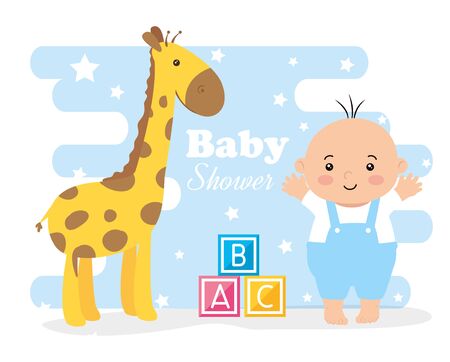Understanding Teething: Typical Symptoms Seen in UK Babies
Teething is a milestone that every British parent anticipates with a mix of excitement and concern. While it is perfectly normal for babies to experience discomfort as their first teeth emerge, understanding the typical teething symptoms can help UK parents distinguish between what’s standard and what might indicate another illness. Most babies in the UK start teething around six months old, although this can vary. The most common signs you’ll notice include excessive dribbling, which often leads to a constant need for bib changes, and gum rubbing as your little one tries to soothe their sore gums—sometimes by chewing on fingers or safe teething toys. Mild irritability or fussiness is also expected, as the sensation of new teeth pushing through delicate gum tissue can be uncomfortable. Some babies may have slightly red cheeks or a mild increase in temperature, but it’s important to note that high fevers are not a typical part of teething. Overall, these symptoms tend to come and go over several days and are usually manageable at home with gentle reassurance and suitable teething products available from UK chemists.
2. Common Baby Illnesses Mistaken for Teething
It’s incredibly common for UK parents to attribute a whole range of symptoms to teething, but not every sign of discomfort in your baby is caused by new teeth pushing through. In fact, several frequent childhood illnesses can easily be mistaken for teething, leading to confusion and sometimes delayed treatment. Understanding the overlap between teething symptoms and those of other illnesses can help you make more informed decisions about your baby’s health.
Common Illnesses Frequently Confused with Teething
| Illness | Typical Symptoms | Why It Gets Confused with Teething |
|---|---|---|
| Common Cold | Runny nose, mild fever, cough, irritability | Babies often drool and become unsettled during both colds and teething; mild fevers and runny noses are mistakenly linked to teething |
| Ear Infection (Otitis Media) | Pain when lying down, tugging at ears, fever, poor sleep | Teething babies may also tug at their ears due to gum pain, and both conditions cause fussiness and sleep disturbances |
| Viral Rashes (e.g., Roseola, Hand-Foot-and-Mouth) | Fever followed by rash, irritability, loss of appetite | The appearance of rashes and high temperatures can coincide with the age when babies are teething; gum swelling may be misread as part of a viral rash |
| Gastroenteritis (“Stomach Bug”) | Vomiting, diarrhoea, mild fever, crankiness | Mild digestive upset and increased saliva production during teething can mimic early tummy bug symptoms |
Why Do Parents Mix Up These Symptoms?
The main reason for confusion is that many symptoms—like drooling, chewing on objects, irritability, mild temperature increases, and disturbed sleep—are shared by teething and common childhood illnesses. In the UK especially, where changeable weather brings frequent colds and viruses, it’s easy to attribute every sniffle or grizzle to teething. Additionally, the classic British approach of “keeping calm and carrying on” might mean parents wait longer before seeking advice if they assume everything is just down to new teeth coming in.

3. Key Differences: Teething vs. Illness Symptoms
When your baby is unsettled, it’s natural to wonder whether teething or a more serious illness is to blame. Understanding the typical differences between teething and illness symptoms can help UK parents make informed decisions about when to seek medical advice and when a bit of comfort at home will do the trick.
Common Teething Symptoms
Teething usually brings mild discomfort rather than severe illness. Typical signs include sore or swollen gums, increased dribbling, a desire to chew on objects, mild irritability, and perhaps a slightly raised temperature (but not a true fever). Your little one might have disrupted sleep and red cheeks, but generally remains alert and interested in play.
Symptoms Unlikely Caused by Teething
Certain symptoms should be considered red flags and are rarely caused by teething alone. If your baby develops a high fever (over 38°C), experiences severe diarrhoea or vomiting, or becomes unusually lethargic or unresponsive, these are signs of illness that require attention from your GP or NHS 111. Persistent loss of appetite, breathing difficulties, or a widespread rash also fall into this category.
A Practical Comparison Table
| Symptom | Typical for Teething? | More Likely Illness? |
|---|---|---|
| Sore gums & dribbling | Yes | No |
| Mild irritability | Yes | No |
| High fever (>38°C) | No | Yes |
| Severe diarrhoea/vomiting | No | Yes |
| Lethargy/unresponsiveness | No | Yes |
When in Doubt, Trust Your Instincts
If you’re ever unsure whether symptoms are due to teething or something more serious, it’s always best to err on the side of caution. UK health services are accessible—don’t hesitate to ring your local surgery or NHS 111 for peace of mind. Knowing the key differences means you can offer the right support for your child’s wellbeing.
4. When to Consult a GP or Health Visitor
While teething is a normal developmental stage for babies, it can sometimes be tricky to distinguish its symptoms from those of more serious illnesses. Knowing when to seek professional advice is vital for UK parents, especially as the NHS offers valuable resources and guidance. Below, we break down when it’s appropriate to consult your GP or health visitor, which symptoms are considered red flags, and how best to utilise NHS services.
Recognising Red Flag Symptoms
Some symptoms may indicate more than just teething discomfort. British parents should keep an eye out for the following warning signs that warrant immediate medical attention:
| Symptom | Why It’s a Concern | Action to Take |
|---|---|---|
| High fever (over 38°C) | Teething rarely causes high fevers; this could signal infection. | Contact your GP or NHS 111 immediately. |
| Persistent diarrhoea or vomiting | Could lead to dehydration or point to illness. | Seek advice from your health visitor or GP. |
| Lethargy or difficulty waking baby | May be a sign of serious infection or other issues. | Go to A&E without delay. |
| Unusual rash not fading under pressure | Petechial rashes can indicate meningitis. | Call 999 or go straight to A&E. |
| Refusal to feed with signs of dehydration (few wet nappies) | Babies need regular hydration; teething shouldn’t stop feeding entirely. | Consult your GP urgently. |
Making the Most of NHS Resources
The NHS offers several avenues for support when you’re unsure if your baby’s symptoms are teething-related or something more concerning:
- NHS 111: Available 24/7 for non-emergency medical concerns. They can direct you to the right level of care.
- Your Health Visitor: Ideal for routine questions about teething and baby development—many offer drop-in clinics and phone consultations.
- Your GP: Book an appointment if your child has persistent symptoms, isn’t improving, or exhibits any red flag signs listed above.
- A&E/999: For emergencies such as breathing difficulties, seizures, or unresponsive behaviour—don’t hesitate to seek urgent help.
Navigating Appointments Efficiently
If you decide to visit your GP or contact your health visitor, keep a log of your baby’s symptoms including temperature readings, feeding habits, nappy output, and any medications given. This information will help healthcare professionals in their assessment and ensure you get the most accurate advice quickly—a particularly useful tip in busy NHS settings across the UK.
5. Popular UK Soothing Remedies: What Works and What Doesn’t
When your little one starts teething, it’s tempting to try every remedy under the sun to ease their discomfort. But with so many options available in UK shops and online, how do you know what actually works—and what might do more harm than good? Here’s a breakdown of the most popular teething relief products and home remedies used by UK families, along with practical advice on what’s safe and effective.
Teething Gels and Powders
In the UK, teething gels containing local anaesthetics like lidocaine were once common, but NHS guidance now advises against them due to potential side effects. Instead, parents are encouraged to use sugar-free teething gels that contain natural ingredients or chamomile. Ashton & Parsons Teething Powders—a classic British remedy—are still widely used and generally considered safe when used as directed, although their effectiveness is mostly anecdotal.
What Works:
- Sugar-free, herbal-based teething gels (check for NHS approval)
- Ashton & Parsons Infant Teething Powders (used according to instructions)
What to Avoid:
- Lidocaine-based gels (now restricted for infants in the UK)
- Any product not approved by the MHRA (Medicines and Healthcare products Regulatory Agency)
Teething Rings and Toys
Chilled (not frozen) teething rings are highly recommended by UK health visitors. Silicone and BPA-free plastic rings are best, offering a safe surface for babies to gnaw on. Some British brands even offer teething toys shaped like woodland animals or classic Beatrix Potter characters—perfect for keeping little hands busy!
Practical Tips:
- Always sterilise teething toys before use
- Avoid anything with small parts or liquid-filled designs that could leak
Home Remedies: Tried and Tested vs. Old Wives’ Tales
A cold, damp flannel can provide instant relief for sore gums—just make sure it’s clean and only used under supervision. Massaging your baby’s gums gently with a clean finger is another NHS-endorsed technique. However, avoid dipping dummies or rusks in honey or sugary substances; not only does this promote tooth decay, but honey isn’t suitable for babies under 12 months due to the risk of botulism.
Safe Home Remedies:
- Cooled (not frozen) flannels or spoons
- Gentle gum massage with a clean finger
Avoid These Methods:
- Dipping dummies in honey or anything sweet
- Alcohol-based remedies (an outdated practice that’s unsafe)
Pain Relief Medications: When to Use Them
If your baby is especially uncomfortable, infant paracetamol or ibuprofen can be given in line with NHS guidelines—always check the correct dosage for your child’s age and weight, and consult your pharmacist if unsure. Never give aspirin to children under 16.
The Bottom Line for UK Parents
While there’s no magic cure for teething troubles, sticking to proven remedies and following NHS recommendations can make this challenging phase a bit easier for both you and your little one. Always consult your health visitor or GP if you’re uncertain about any symptoms or treatments.
6. Supporting Your Baby’s Comfort: British Parent Tips
When it comes to soothing a teething baby or managing minor illnesses at home, UK parents have developed a toolkit of practical, culturally specific strategies that draw on both tradition and modern convenience. Here’s how British mums and dads keep their little ones comfortable while distinguishing teething discomfort from other ailments.
Time-Tested Soothing Techniques
One of the most trusted remedies in British households is the classic chilled teething ring. Kept in the fridge (never the freezer!), these rings provide gentle relief for sore gums without posing any choking risk. Many parents also swear by offering a clean, cold wet flannel for babies to chew on—simple, effective, and easy to wash.
The Power of a Good Brew… For Parents!
While babies can’t enjoy tea just yet, making a cup of your favourite brew offers parents a moment of calm during challenging days. Looking after your own wellbeing helps you stay patient and attentive to your baby’s needs.
Over-the-Counter Solutions
UK chemists are well stocked with sugar-free teething gels and powders specifically formulated for infants. Always check with your pharmacist or health visitor before use, but many families find these products offer quick relief when teething pain peaks.
Home Comforts and Familiar Routines
British parents often find that sticking to familiar bedtime routines—bath, storytime, cuddles—can help soothe fussy babies, whether symptoms are due to teething or minor illness. A comforting sleep environment, perhaps with a favourite blanket or soft toy, reassures little ones and encourages rest.
When to Seek Medical Advice
If symptoms like high fever, rash, vomiting, or persistent crying occur alongside teething signs, UK parents are advised to contact their GP or NHS 111 for advice. Trust your instincts: you know your baby best, and professional reassurance is only a phone call away.
Community Support: You’re Not Alone
The tradition of chatting with other parents at local playgroups or via online forums such as Mumsnet is invaluable. Sharing tips and experiences not only provides comfort but also helps you pick up new ideas tailored to British lifestyles.
By combining tried-and-tested home comforts with expert guidance, UK parents can confidently support their babies through both teething and minor illnesses—ensuring everyone gets a bit more sleep at night!


